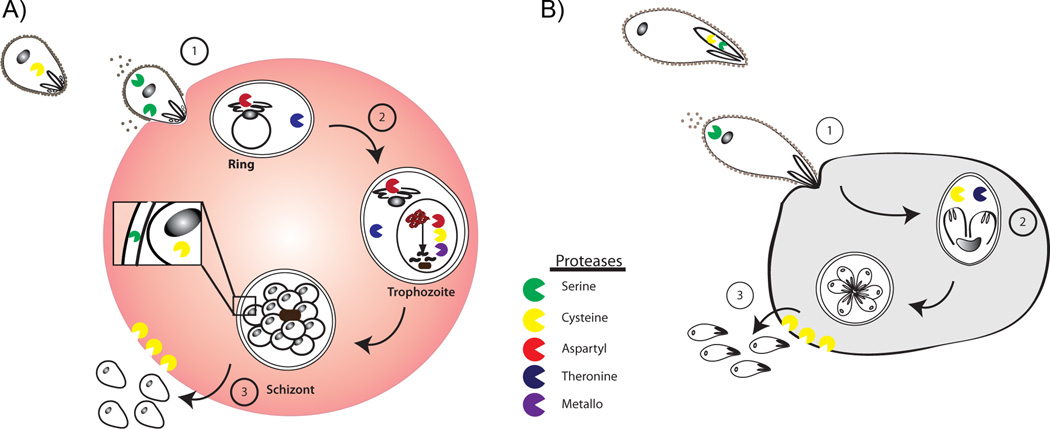Figure 2.
Schematic depicting the role of proteases in different stages of the parasite life cycle in A) Plasmodium falciparum and B) Toxoplasma gondii. Different classes of proteases are represented in the corresponding color. Proteases are involved in proteolytic maturation of apical organelle proteins prior to invasion (not shown in figure). During invasion (1), the proteins from the apical organelles can facilitate adhesion to the host cell, and these proteins are subsequently shed in a protease-dependent manner. Proteases are also involved in general metabolism (2) to allow growth and replication. After several rounds of cell division, host cells rupture to release parasite zoite cells (3) which then re-invade other host cells and repeat the life cycle.

